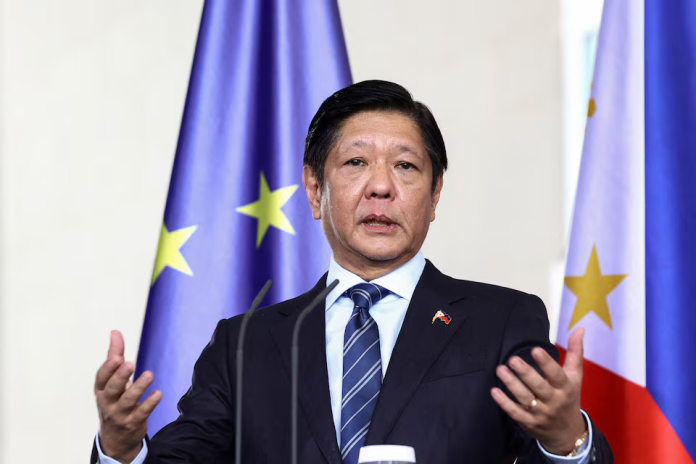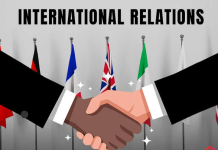MANILA, March 28 (Reuters) – President Ferdinand Marcos Jr. of the Philippines announced on Thursday that the country will respond to China’s “illegal, coercive, aggressive, and dangerous attacks” in the South China Sea with appropriate and reasonable countermeasures.
“We seek no conflict with any nation, especially those who claim to be our friends, but we will not be intimidated into silence or subservience,” Marcos stated on Facebook, emphasizing the Philippines’ commitment to defending its sovereignty.
However, Marcos did not elaborate on the specific countermeasures that would be implemented in response to China’s actions.
Tensions between the Philippines and China have escalated in recent times due to what Manila perceives as repeated acts of aggression by Chinese coastguard and maritime militia vessels within the Philippines’ exclusive economic zone (EEZ) in the South China Sea.
The latest incident occurred when China used water cannon to disrupt a Philippine resupply mission to the Second Thomas Shoal, where Philippine soldiers are stationed to guard a grounded warship.
China, which asserts sovereignty over much of the South China Sea, accuses the Philippines of encroaching on its territory and defends its actions as necessary measures to protect its interests.
In response to China’s provocations, Marcos revealed that he has consulted with defense and security officials and engaged with international partners for support in safeguarding Philippine sovereignty and territorial integrity.
The deteriorating relations with China coincide with Marcos’ efforts to strengthen defense cooperation with the United States. The Philippines has expanded joint military exercises with the U.S., including patrols over the South China Sea, much to Beijing’s displeasure.
U.S. Defense Secretary Lloyd Austin recently reaffirmed Washington’s commitment to its mutual defense treaty with the Philippines during a phone call with his Philippine counterpart, Gilberto Teodoro. The treaty obliges both countries to come to each other’s defense in case of an attack, extending to coastguard and civilian vessels operating in the South China Sea.
As tensions continue to simmer, the Philippines finds itself navigating a delicate balance between asserting its sovereignty and managing its strategic alliances, particularly amidst China’s growing assertiveness in the region.























